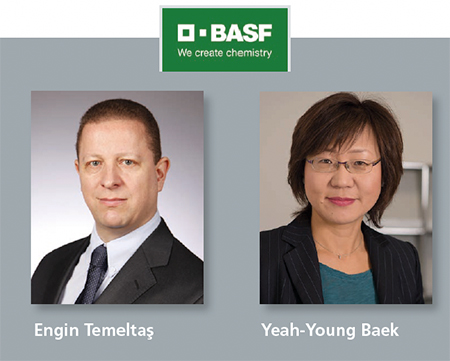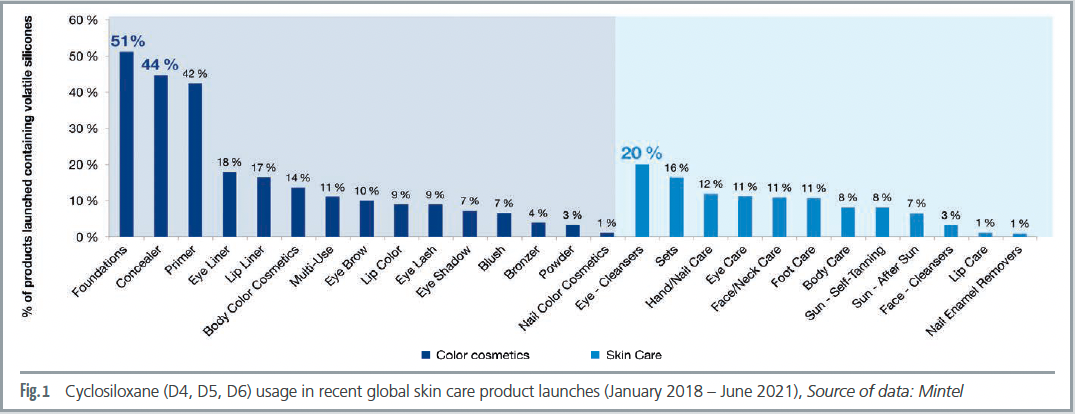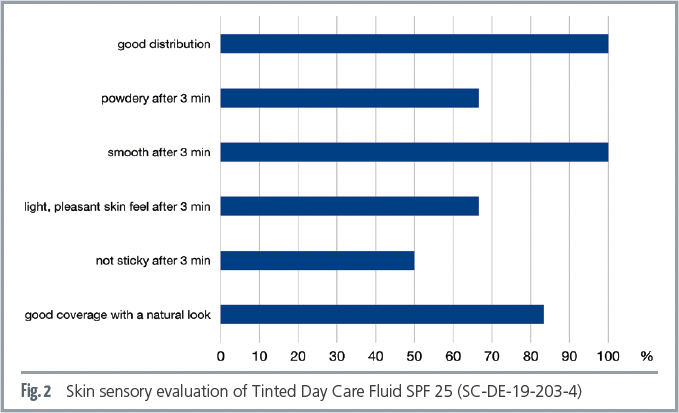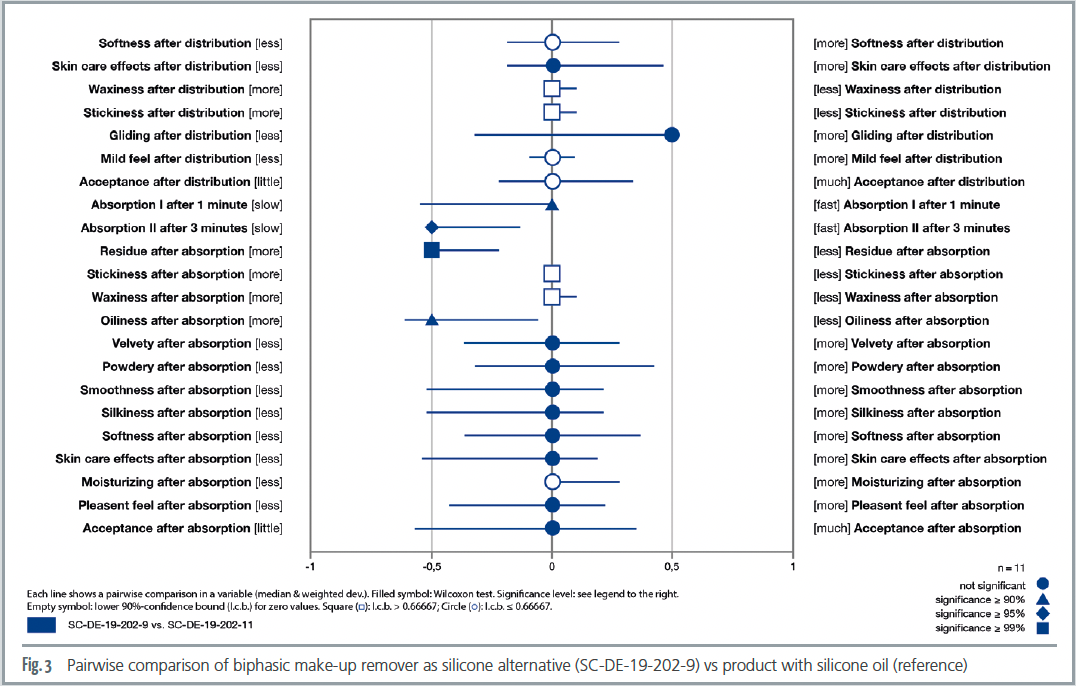
Getting Ahead of the Trend for Silicone-free Cosmetics
Interview with Engin Temeltaş, Product Stewardship Personal Care Europe and Yeah-Young Baek, Market Development Skin Care Europe
BASF
Volatile silicones are on the way out of the cosmetics industry. Strict new regulations and increasingly eco-conscious consumers are driving a switch to silicone-free products. Why is this happening now? And what alternatives are there? BASF experts Engin Temeltaş from Product Stewardship and Yeah-Young Baek from Marketing share their insights into this major trend.
SOFW: Why is the trend for silicone-free cosmetics getting stronger?
Temeltaş: There are two main driving forces for this trend: changing regulations and shifting consumer preferences. When it comes to regulations for silicones in cosmetics, we’re mostly talking about three commercial volatile cyclosiloxanes: D4, D5 and D6. They are attracting regulatory attention because they were (in case of D4) or continue to be commonly used ingredients in the beauty industry but do not have a positive ecological profile. This applies in particular to D4, which belongs to category 1 for chronic aquatic toxicity and has a mandatory classification as category 2, “toxic to reproduction”, indicating that it is harmful to humans. D5 and D6 are likewise persistent, not biodegradable, and ultimately harmful to the environment.
Governments worldwide are restricting or sometimes prohibiting the use of these materials in cosmetics. While it is already forbidden to actively use D4 in cosmetic products according to the EU cosmetics regulation (EU/1223/2009), its presence is still possible as an unintended impurity arising from other raw materials. To cover the unintended presence of this type of substance, they are classified as a Substance of Very High Concern (SVHC) in the European Union, while the presence of D4 and D5 in a concentration equal to or greater than 0.1 percent has been prohibited for rinse-off cosmetics since February 2020.
The European Chemicals Agency (ECHA) has now submitted a proposal to extend this restriction to D6, and to also include leave-on applications for all three cyclosiloxanes. When this legislation is approved, manufacturers will have five years to phase out these materials. Outside the EU, a similar regulatory focus is gathering momentum. As cyclomethicones have been under discussion for several years now, some companies have already excluded those structures from their formulations. Due to the recent regulatory developments, there is now fresh impetus to do so.
Baek: I believe this is an important opportunity for cosmetics manufacturers. By staying ahead of this regulatory trend, companies can tap into shifting consumer preferences. Of course, you can temporarily get around regulatory restrictions by replacing cyclosiloxanes with other silicones that are not – yet – under debate. But this approach is still not in line with consumers’ desire for cosmetics that are natural and sustainable.
Replacing silicones like D4, D5 and D6 with sustainable, biodegradable alternatives can empower manufacturers to meet these changing expectations, which are sometimes referred to as the “Clean Beauty” trend. Yet, one challenge remains: more eco-friendly products need to deliver the same level of performance as formulations that include silicones. This is a challenging task, since silicones offer a very pleasant sensorial perception and high technical performance that are difficult to replicate.

SOFW: How is BASF responding?
Temeltaş: We are creating a portfolio of sustainable alternatives, i.e. without use of silicones – and not just the materials that the regulators are focusing on. Our specialists are developing state-of-the-art solutions that make it possible to eliminate all silicones from cosmetics. Fully replacing silicones puts manufacturers in a strong position, because their formulations are ahead of whatever regulations might be introduced for silicones in cosmetics, anytime and anywhere in the world.
Baek: Emollients are a great example. These ingredients play a key role in creating cosmetic products that have a pleasant skin feel and gratifying textures. Especially light textures are very popular among consumers. They also provide a protective layer on the skin, keep it moisturized, solubilize lipophilic active ingredients and crystalline UV filters, and help to disperse pigments. We reviewed the use of cyclosiloxanes in various recently launched skin care products and color cosmetics worldwide. Around 50% of facial foundations and about 20% of make-up removers contained at least one of these silicones – so we have now developed and tested sustainable alternatives for these two categories.

SOFW: What exactly are these alternatives
Baek: For the facial foundation category, we formulated a tinted day care fluid that replaced a volatile silicone emollient with Cetiol® Ultimate (INCI: Undecane (and) Tridecane). This is an ultra-fast-spreading and 100% plant-based emollient that matches the silicone product’s results when tested in a W/O formulation for mechanical smear resistance, rain resistance, gloss kinetics, blemish coverage and color homogeneity. Using our sustainable alternative, we created a product with SPF 25 sun protection, a natural look and no color shift over time. It is also easy to distribute, and leaves skin feeling powdery and smooth.
In the second category, our scientists created a biphasic make-up remover. It contains a mixture of three fully plant-based emollients that account for 39% of the overall formulation, replacing a volatile silicone ingredient that accounted for 39% of the previous formulation. The optimal mixture of sustainable emollients was designed using a digital modeling tool that applies artificial intelligence (AI). Tests showed that replacing the volatile silicone with our plant-based alternative mixture had no negative impact on the sensory properties of the make-up remover. It enabled the formulation of a silicone-free biphasic make-up remover that provides excellent performance when removing various decorative cosmetics. It is also tear-free, non-sticky, suitable for cold processing, and contains content that is 98% of natural origin in line with ISO 16128. In fact, our formulation performed even better than the silicone-based product.

SOFW: How do you expect the silicone-free trend to develop in the future?
Temeltaş: I expect regulations covering the use of cyclosiloxanes to be introduced around the globe, and that these materials will eventually be banned worldwide. In Canada, for example, D4 is already in the spotlight due to its environmental toxicity. In light of the new European Chemicals Strategy for Sustainability (CSS), the latest approach within the European Green Deal aiming to ensure a toxic-free environment, we can expect similar restrictions to those placed on cyclosiloxanes to be issued or at least discussed for further substances in the same chemical group.
Baek: That’s the future – but we can already achieve it today. Our sustainable alternatives offer companies in this industry a clear path to replace silicones in their formulations now – instead of waiting until they have no choice.
However, we’re not just trying to stay one step ahead of regulators. We see the Clean Beauty trend as a massive opportunity for companies in this industry to future-proof their product range by responding to changing consumer expectations at an early stage. Cosmetics manufacturers that offer silicone-free, safe and biodegradable products now can position themselves as market leaders in the years to come. Our sustainable alternatives to volatile silicones open up attractive potential for our customers. And we are offering solutions that tap into this potential while delivering the performance and feeling that consumers expect.
Engin Temeltaş,
Product Stewardship Personal Care Europe
Engin Temeltaş has 20+ years of experience in the chemical industry. Before joining BASF Personal Care & Nutrition GmbH in his current role in 2020, he held various roles in the coating industry, including R&D, REACH, Regulatory Affairs and Product Stewardship.
Yeah-Young Baek
Market Development Skin Care Europe
Yeah-Young Baek holds a master’s degree in biotechnology and has 20+ years of experience with BASF in the beauty and personal care industry at different locations for regional and global marketing roles. After the acquisition of Cognis, she relocated to Germany, where she is now responsible for skin care market launches in Europe.
SOFW Journal 03/22 | Volume 148 | Thannhausen, Germany, March 17, 2022



